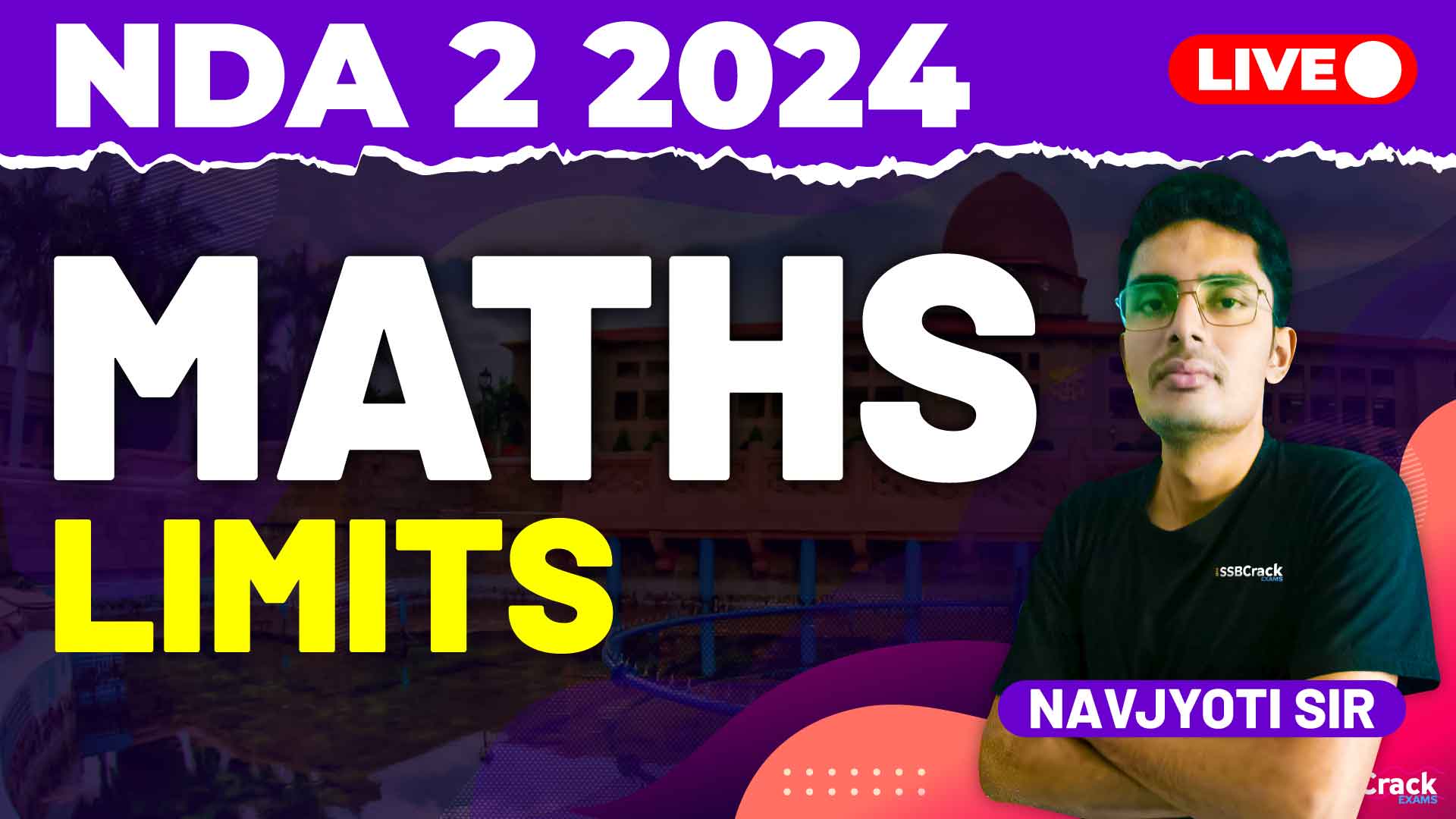Preparing for the NDA-NA Exam, particularly the Mathematics section, requires a thorough understanding of fundamental concepts. One such crucial topic is Limits, which forms the foundation for many other areas in calculus, including continuity and differentiability. This article will provide a comprehensive overview of the key sub-topics discussed in our preparation class: the definition of limits, indeterminate forms, and methods for solving limits. Additionally, it will offer strategies to effectively prepare for and approach MCQs on limits, continuity, and differentiability.
Understanding Limits
Definition of Limit
The concept of a limit is fundamental in calculus. Simply put, a limit describes the value that a function approaches as the input (or variable) approaches a certain point. Understanding limits helps in analyzing the behavior of functions at specific points, particularly where the function may not be explicitly defined.
Key Sub-Topics
Indeterminate Forms
Indeterminate forms are expressions that do not initially lead to a definitive limit. Common indeterminate forms include 0/0 and ∞/∞. Recognizing these forms is crucial as they require special techniques to resolve and find the limit.
Solving for Limits by Various Methods
There are several methods to solve limits, each useful in different scenarios. These methods include:
- Direct Substitution: This is the simplest method where the value is directly substituted into the function. However, this only works when the function is continuous at the point of interest.
- Factoring: This involves factoring the function to cancel out terms and simplify the expression, making it easier to find the limit.
- Rationalization: This method is used for functions involving roots. By multiplying the numerator and denominator by a conjugate, the expression can be simplified to find the limit.
- L’Hôpital’s Rule: This rule is particularly useful for indeterminate forms. It involves differentiating the numerator and denominator separately to resolve the limit.
Solving MCQs on Limits, Continuity, and Differentiability
Our class dedicated significant time to solving multiple-choice questions (MCQs) on limits, continuity, and differentiability. Here are some strategies to effectively tackle these questions:
1. Understand the Question
Carefully read the question to determine what is being asked. Identify if the problem requires finding a limit, proving continuity, or determining differentiability. Understanding the core requirement is the first step towards solving the problem correctly.
2. Identify the Method
Based on the nature of the function and the limit, choose the appropriate method to solve the problem. For straightforward functions, direct substitution might be sufficient. For more complex expressions, consider factoring, rationalization, or applying L’Hôpital’s Rule.
3. Simplify the Expression
Simplifying the given function is crucial. This might involve factoring out common terms, rationalizing the expression, or using algebraic manipulation to make the limit more apparent.
4. Practice Common Patterns
Many limit problems follow common patterns or involve standard forms. Regular practice will help you recognize these patterns quickly and apply the correct method to solve them efficiently.
5. Double-Check Your Work
After solving the problem, review your steps to ensure there are no errors. Confirm that you applied the methods correctly and that your final answer makes sense in the context of the problem.
Effective Preparation Strategies
1. Build a Strong Foundation
Begin with a solid understanding of the basic concepts of limits. Make sure you can define a limit and understand its significance. Use visual aids such as graphs to see how functions behave as they approach specific points.
2. Consistent Practice
Regular practice is key to mastering limits. Work on a variety of problems to become familiar with different types of limit questions. This practice not only reinforces your understanding but also improves your speed and accuracy.
3. Utilize Study Resources
Take advantage of textbooks, online tutorials, and educational videos to deepen your understanding of limits. These resources often provide additional examples and problem-solving techniques that can be very helpful.
4. Solve Previous Year Papers
Reviewing previous years’ question papers is an excellent way to understand the exam pattern and the types of questions commonly asked. This practice will help you manage your time effectively during the actual exam and identify important topics.
5. Engage in Group Study
Group study sessions and discussions with peers can provide new insights and help clarify doubts. Explaining concepts to others is also a great way to reinforce your own understanding.
6. Seek Help When Needed
If you encounter difficulties, don’t hesitate to seek help from teachers or tutors. Clarifying doubts promptly will prevent confusion and ensure a solid understanding of the material.
7. Time Management
Effective time management is crucial during the exam. Practice solving questions within a set time limit to simulate exam conditions. This will help you become more efficient and reduce exam-day stress.
Conclusion
Mastering the concept of limits is essential for excelling in the Mathematics section of the NDA-NA Exam. Our class focused on understanding key sub-topics, including the definition of limits, indeterminate forms, and various methods for solving limits. By practicing these concepts and solving relevant MCQs, you can build a strong foundation and improve your problem-solving skills.
In conclusion, dedicating time to understand and practice these concepts, especially focusing on solving MCQs, will significantly enhance your performance in the NDA-NA Exam. Remember to maintain a consistent study routine, utilize visual aids, and engage in group discussions to solidify your understanding. With these strategies in place, you will be well on your way to mastering this crucial topic and achieving success in your exam preparation.







